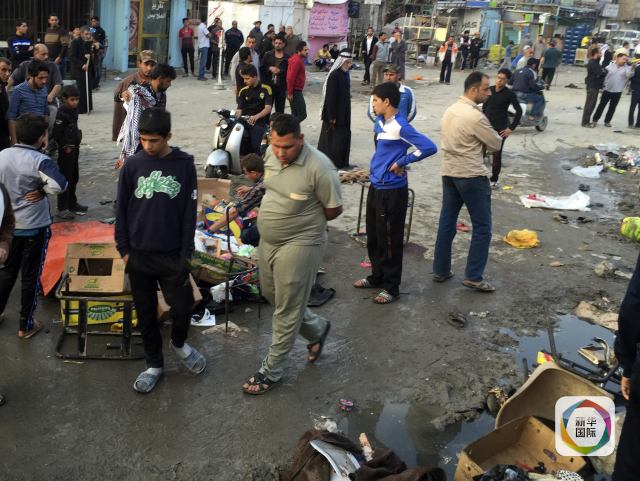The end of Islamic State
- By Sajjad Malik
 0 Comment(s)
0 Comment(s) Print
Print E-mail China.org.cn, December 15, 2017
E-mail China.org.cn, December 15, 2017

Baghdad, capital of Republic Of Iraq [Photo/Xinhua]
Iraqi Prime Minister Haider al-Abadi, has boldly asserted that his troops have eliminated the Islamic State from his land. The announcement was made after the Iraqi forces forced the rebels to abandon some remaining pockets of resistance in areas near the border with Syria.
He also declared December 9 as a national holiday to celebrate the victory annually. No doubt the Iraqi nation and its security forces should be given credit for turning the tide against militants and finally evicting them. Iraqis have been through very tough time and deserve a peaceful and prosperous future.
The defeat of Daesh is big news, but it's a bit premature to celebrate the victory. The physical control of militants over vast areas could have ended, but not the threat of militancy. It may take greater efforts to create the "positive peace," if we can borrow the terminology from Norwegian scholar Johan Galtung.
Among the many forms of conflict, terrorism is quite different from traditional armed engagements. It is shadowy in nature and thrives on a pervasive sense of deprivation caused by local and extraneous factors. The underlying reasons are mainly political, but extremist groups exploit socio-economic conditions to overthrow the established system with a promise to replace it with a better one.
Conflicts do not erupt overnight, but gestate over a long period of time before local conditions are ripe for a conflagration. Technically, it is called trigger factor, which is something that suddenly fans the flames of unrest, creating an ideal situation for radical groups to take up arms against the government.
During the Cold War, most of the conflicts were woven around the socialist or capitalist systems; however, after the demise of the USSR, the situation has changed. We don't have a popular ideology to attract the people and take up arms. This void is being filled by religion and we see a revival of rightwing sentiments, based on either religion or nationalism.
There is resurgence of Hindutva in India and new-born Christians popularized by televangelists in the West. Muslim radicalism is no secret and there are throngs of Muslims who believe that implementing a strict version of Islam could end their sorrows. The clerics use hardline interpretation of the religious texts to garner support and motivate their followers to wage armed struggle, a jihad.
However, there's disagreement over who can declare a holy war. Several religious scholars assert that the concept of a private jihad is foreign to Islam and only an Islamic country can wage or announce one. Yet, this has not stopped endless jihadi enterprises by armature clerics.
The invasion of Iraq by the U.S. in 2003 was a trigger for the people to stand up who were fed up with decades of misrule by Saddam Hussein. But the euphoria ended with the sense of betrayal and loss.
The local Shiite-Sunni divide and regional rivalries played a role. The eruption of conflict in Syria in 2011 provided another kind of trigger and paved way for the entry or emergence of various groups, including the IS.
Daesh has been a phenomenon in militancy. It came, it saw and conquered. For about three years from 2014, it has played the game of death. However, when the tide turned, it lost its grip on all urban centers both in Iraq and Syria in quick succession.
The loss of control over areas is huge blow, but it is not the end of the Daeshideology of hatred and narrow religiosity. The problem with the militant notions is that they die hard. You have to change the mindset through education and by changing the realities on the ground. Many countries have turned the tide against groups of Muslims extremists, but I do not see concrete effort to change the mindset.
Also, the regional politics of Middle East still offer enough space to brew hardline groups. The recent decision by the U.S. to recognize Jerusalem as the capital of Israel is just one example which would reverberate for a long period of time and help keep alive the Daesh flame. The conflict between Saudi Arabia and Iran is another parallel.
Sajjad Malik is a columnist with China.org.cn. For more information please visit:
http://www.china.org.cn/opinion/SajjadMalik.htm
Opinion articles reflect the views of their authors, not necessarily those of China.org.cn.






Go to Forum >>0 Comment(s)